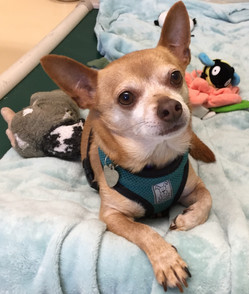Picking the Right Shelter Dog for You
- Beth Deitchman

- Oct 13, 2023
- 2 min read
It can be challenging to resist an adorable face when you walk through a shelter or look at pictures of adoptable dogs online. With just one glance, you may decide that this dog is the perfect pet for you. Sometimes you will be right. Other times the match doesn't work. So this week I offer some suggestions for choosing the right shelter dog for you.
Before heading to the shelter, decide what you are looking for in a dog and be honest with yourself about your expectations and lifestyle. Do you picture yourself with a dog who thrives no matter where you take him? Then the shy pup who would rather stay at home may not be the one for you. Do you want a dog who will happily play with your friends' dogs? Or are you okay with a dog who prefers human companionship? How active are you? A dog won't necessarily turn you into a runner! Do you work long hours away from home? Do you travel a lot for work? How long will your dog be alone during the day or night? The more questions like these you can answer, the better your chances are of finding the right dog for you.
Also consider breed and age when you look for a dog. Active breeds like huskies, border collies, and cattle dogs may prove challenging if their humans can’t give them the exercise and mental stimulation they need. On the other hand, tiny dogs like Chihuahuas and dogs with short snouts like pugs may not enjoy long or difficult hikes (though you can teach them to enjoy being in a dog backpack!). If you decide to adopt a puppy, be sure you have the time and energy to devote to their training and socialization and the patience to clean up messes. Older dogs make wonderful companions, but sometimes they have expensive medical needs.
Where you live can influence your decision, too. If you live in an apartment or rented house, ask your landlord about policies like pet rent, pet deposits, or breed restrictions before adopting—you don't want to discover that your building only allows cats the day you bring your new dog home! For people with fenced yards, look for potential escape routes. Little dogs can wiggle through surprisingly small gaps. No matter where you live, take a walk around your neighborhood, noticing the number of dogs you pass and making note of the noise level. All of this information will help the shelter staff make a good match.
Bringing your new pet home is exciting, but it can also be daunting. Next week I'll write about how you can help your adopted dog settle into his new home.
















Comments